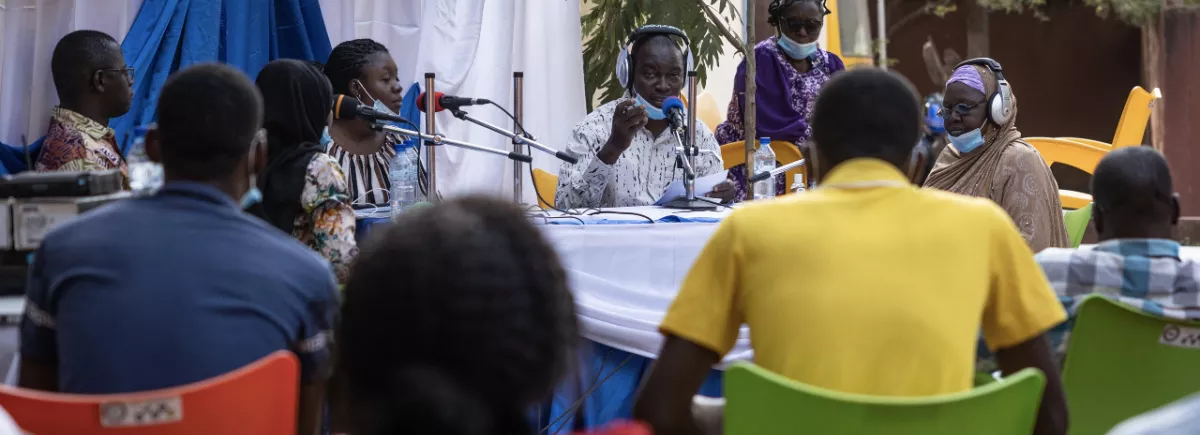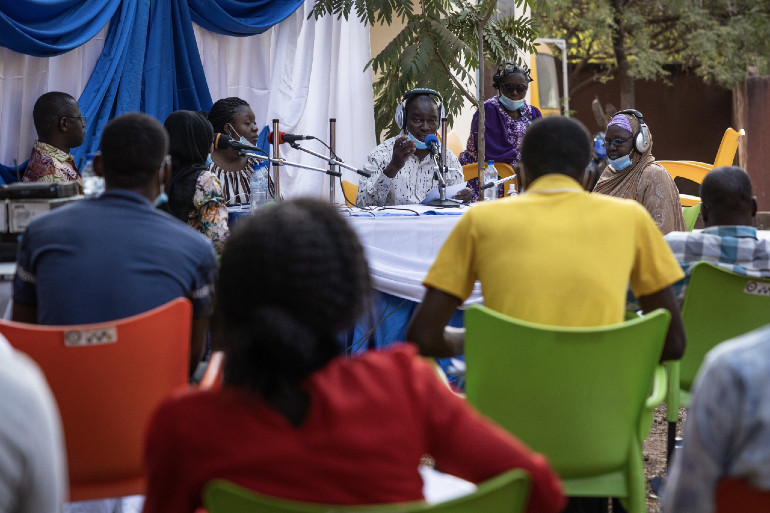
Public discussion programmes on the agenda for MediaSahel trainers
Related project
MediaSahelFrom 22 November to 4 December 2021, 10 trainers from Burkina Faso, Mali and Niger travelled to the Burkinabe capital for a final training session, dedicated to techniques for hosting public discussion programmes.
The discussion programmes are not without precedent in the media history of West Africa. In Burkina Faso, for example, Radio rurale used this radio format to relate the history of villages and communities, in a festive atmosphere, in-situ, on the ground under a tree or in the market place. On-location broadcasting of RFI’s flagship programmes, such as Appel sur l’actualité and Débat africain, in some African towns is also part of this dynamic.
Although hardly used by the young generations of journalists today, these programmes are excellent spaces for including the public, especially young people, in public debate and promoting development.
The training sessions on public discussion and appeal programmes are being held for 10 trainers from three countries, with the aim of reacquainting media outlets with this journalistic format. Run in tandem by Sophie Ekoué and Soumaïla Rabo, this session provided the 10 trainers with the teaching resources and practical skills needed to understand this type of format and to run their own dedicated training session.
One of the participating trainers attests to the importance of this format: I had listened to discussion programmes in the past, but I was not aware of all the preparation that has to take place beforehand. Thanks to the training, I understand the human and technical resources required, the importance of teamwork, the wiring before recording, and the importance of promoting the programme. Above all, the training demonstrated the importance of creating a platform for expression (for finding solutions) in these particular periods of our history in which the Sahel nations are facing serious and unprecedented security and socio-political crises.

The role of the trainers will now be to pass on what they have learned to the project’s partner radio stations during dedicated sessions.
After the training cycles on the basics of journalism, radio interactivity, gender- and conflict-sensitive journalism, the cycle on public discussion programmes will be launched from March onwards.


